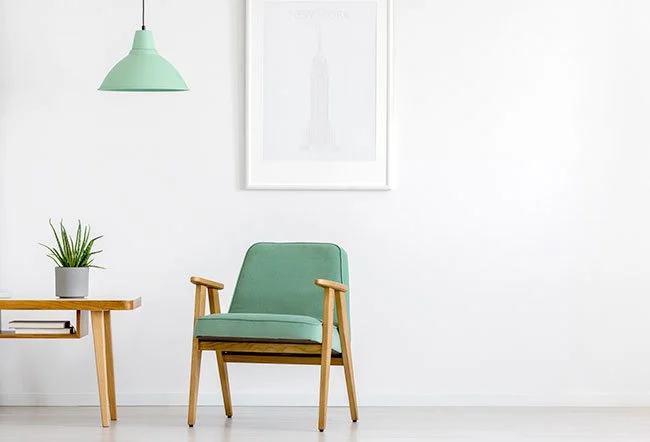What is Minimalism and What is It All About?
Minimalism is a popular modern living style that involves removing excess possessions and clutter from your life to create more peace and simplicity. The minimalist movement began in the late 1960s as a response to the overwhelming materialism of the time. While there are many different interpretations of what minimalism is, all minimalist lifestyles have some common tenets: living with less, valuing quality over quantity, and reducing distractions.
Minimalism can be applied to all aspects of your life, from your wardrobe to your home décor. A minimalist living room might have only a few pieces of furniture, with clean lines and simple shapes. The walls might be neutral or white, and there would be little or no clutter. Minimalist homes are often designed for simplicity and functionality, with an open floor plan that allows for easy movement between spaces.
How To Get Started With Minimalist Living
In today’s society, it seems like having more possessions is equated with being happier and more successful. But what if you don’t want or need all of that stuff? What if you want to simplify your life and live with less? Here are a few tips on how to get started living a minimalist life:
- Identify the reasons why you want to live a minimalist lifestyle. Are you looking to simplify your life? Reduce stress? Have more time and money? Once you know why you want to minimalize, it will be easier to stick with it.
- Start small. Don’t try to change everything overnight. Start by getting rid of one item each day until you have gotten rid of 30 items.
- Create a rule for yourself about buying new things. For example, only buy something if you get rid of something else first. This will help you avoid accumulating more stuff.
- Create boundaries. One of the main tenets of minimalism is that you should only keep what brings you happiness. To create boundaries for yourself and stick to them.
- Get rid of excess clutter. This can be difficult for some people, but it’s essential for living a minimalist lifestyle. Start by going through your belongings and getting rid of anything you don’t need or use. This may include clothes, furniture, knick-knacks, etc.
How To Declutter Your Home and Be More Organized With Less Stuff!
The best way to declutter your house is to start small. Tackle one room at a time, and make a plan before you start. Decide what needs to stay in the room, and what can be moved to other areas of the house or donated to charity. If you have a lot of stuff, consider using boxes or bins to help organize everything. Label the boxes so you know what’s inside, and make sure they’re easily accessible. You may also want to create zones in each room, so everything has its own place. This will help keep your home neat and organized.
Start by going through each room and sorting through your belongings. Get rid of anything you don’t need or use anymore. This includes clothes, furniture, kitchenware, and any other items. You can also remove any wall prints from your walls that you are not emotionally attached to or provides little to no value.
Create four piles: keep, donate, sell, and trash. Go through each pile and determine what to do with each item. If you want to keep an item, put it in a designated spot in the room so it’s easy to find and access. If you want to donate an item, find a charity or organization that accepts donations. If you want to sell an item, list it on a website or local classifieds.
The Benefits of a Minimalist Approach to Life and Design
While the minimalist lifestyle is not for everyone, there are many benefits to be had from simplifying one’s life. From reducing stress to improving mental clarity, here are 10 benefits of minimalism:
- A minimalist lifestyle can help reduce stress levels by decluttering your space and removing unnecessary obligations and commitments.
- Living a minimalist lifestyle can help improve your focus and mental clarity by teaching you how to prioritize what’s important and eliminating distractions.
- Minimalism can help you live more sustainably by teaching you how to use fewer resources and waste fewer materials.
- A minimalist lifestyle can help improve your financial situation by teaching you how to spend smarter and eliminate unnecessary expenses.
- Minimalism can encourage healthier eating habits by promoting simpler, more sustainable diets.
Also Read: The Benefits of Renovating Your Home
